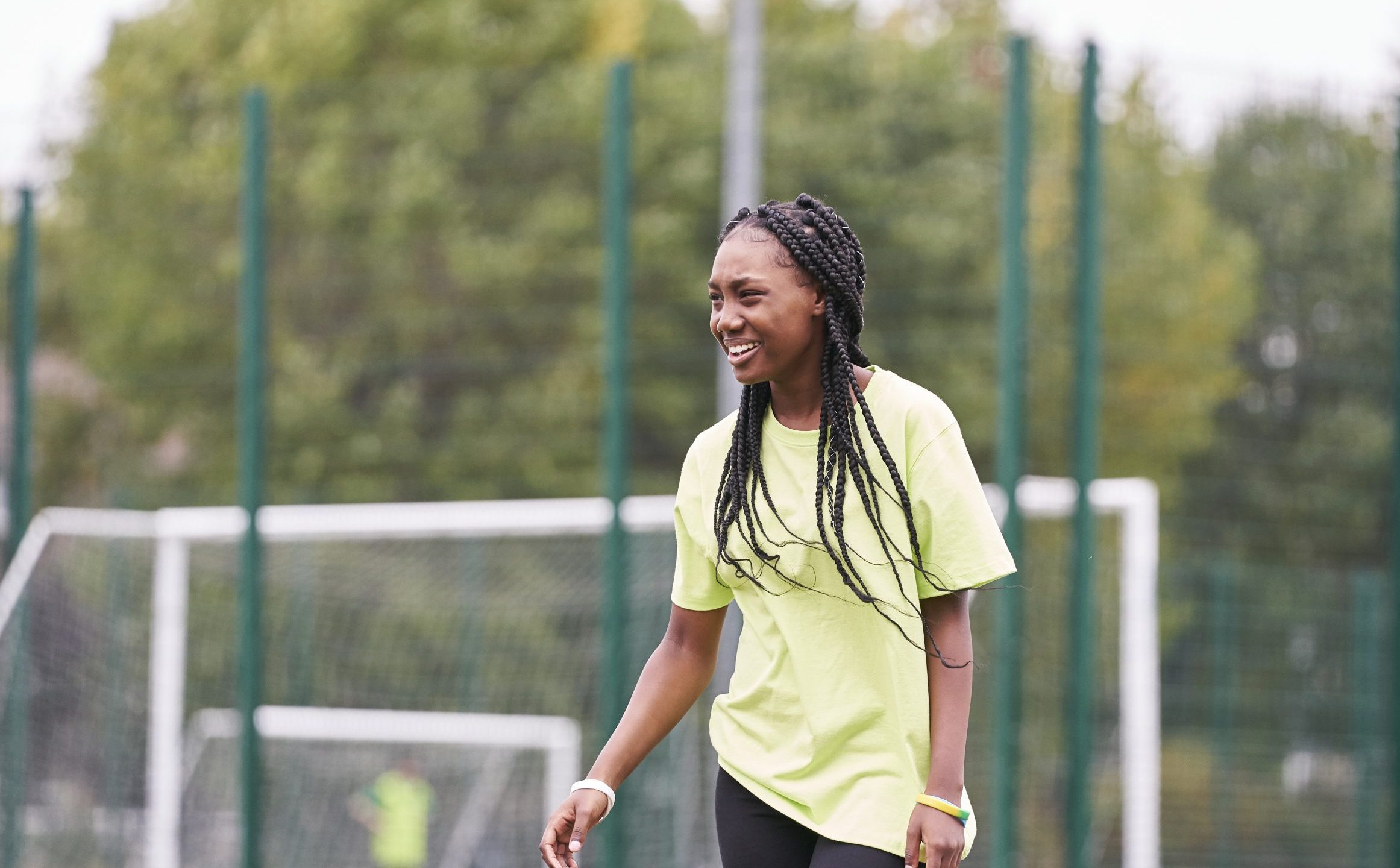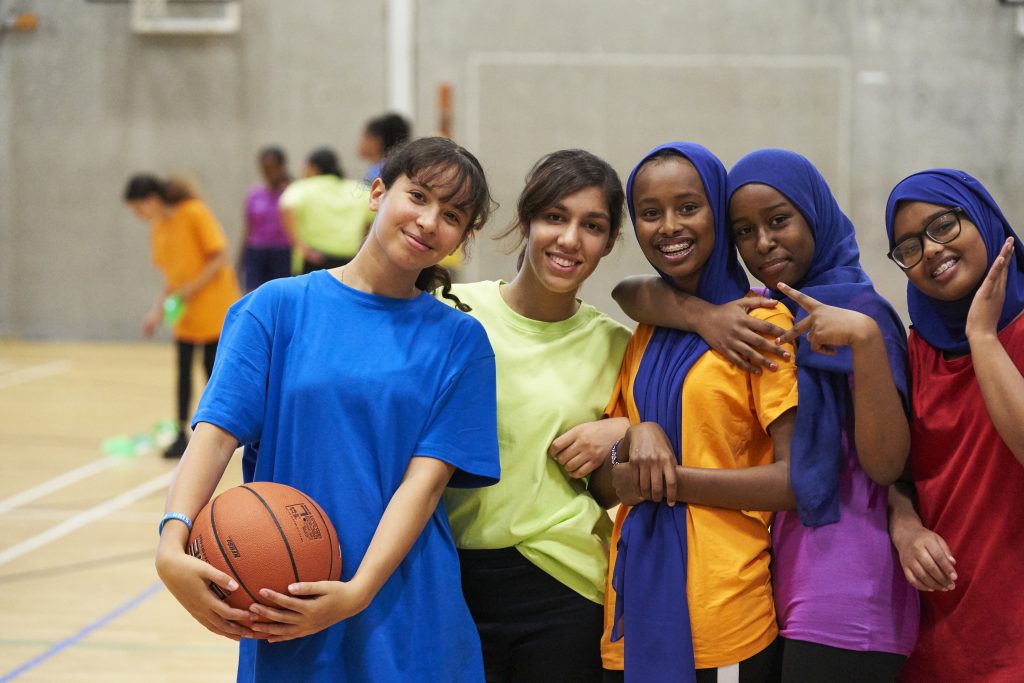Puberty and Periods!
When girls get to around the age of 9 they begin a four-year process called puberty. This involves an increase in the primary hormones, oestrogen and progesterone. Boys also go through the process of puberty, but it tends to happen a bit later, and the main hormone that increases and drives this process is testosterone. Girls will also start to menstruate during puberty and may experience a number of physical and emotional changes as a result. It is important to appreciate that it can take a while for girls to adjust to these and unfortunately, they may be more likely to withdraw from sport and physical activity during this time.
Throughout the menstrual cycle, hormones are constantly changing, as can be seen in the graph in figure 1. This actually means that on any one day, a girl’s body is in a different physiological and psychological state, so things such as mood, appetite, emotion and rationale are likely to vary.
When girls first start to menstruate, their cycle is more likely to be irregular and may be longer or shorter than the typical 28-day cycle (± 5 days). This is very common and is just a process that happens as their hormones settle into a regular pattern. This makes it especially difficult to predict when their period might start and to be adequately prepared.
Figure 1.
It is also common for girls to experience some pain or discomfort, either just before or during their period. This is thought to be caused by a fall in hormones which can cause stomach cramps, back or leg cramps, headaches, feelings of increased tiredness, changes in mood, appetite, motivation and/or energy levels and many other things. All of which have an impact on a girls’ motivation to be active at this time.
Why should girls stay active?
So… what can a girl do to manage symptoms and why should we encourage girls stay active during their period? While it may seem a surprise to most, and they may not feel like doing it, exercise and being active is a really good way of reducing symptoms and helping girls to feel better!1
There are other benefits of exercise too as it causes the release of endorphins, can boost mood and help with relaxation. So even if girls don’t feel like doing exercise, once they have done it they will feel so much better. However, telling girls to just ‘get on with it’ is not the most effective way of engaging them to be active – we need to show empathy and support for what they are feeling. There are also some other things that can be encouraged to help girls with symptoms associated with menstruation and puberty…
- Try to reduce stress levels. Stress can come from a whole range of things during puberty such as excessive school work, low self-esteem, body image and trying to ‘fit in’ with others. It is important to avoid putting undue pressure on girls at this time and instead, support them to adopt strategies to reduce stress.
- Lower-impact exercise like Pilates and yoga have been shown to be beneficial for females that experience premenstrual syndrome (PMS)2.
- Good sleep is important. Sleep disturbances are often common just before menstruation, so emphasis should be on a sleep routine and good sleep hygiene.
- Focus on a healthy, balanced diet. Foods high in sugar and saturated fat can worsen symptoms, so encourage a focus on fruit, vegetables and fibre.
- Eating foods high in iron such as red meat, spinach and almonds is important during menstruation to make up for iron losses from menstrual blood loss.
- Take control: Orecco have just created a free app called FitrWoman, which allows women and girls to track their menstrual cycle so that they know when their period may come, what is happening in their body and provides information about how they can exercise and what they should eat throughout their menstrual cycle.
Puberty and Sport: An Invisible Stage highlights the negative impact that puberty and periods can have on girls’ physical activity behaviour. Parents, teachers, coaches, and sports deliverers need to de-stigmatise periods and arm them with the knowledge and tools to stay active during puberty, to prevent them from falling into inactive habits that can follow them into later life.
Georgie Bruinvels is a Research Scientist at Orreco and is leading on the science in the FitrWoman Project. She is also a physiologist at St Mary’s University and a keen runner.
References:
El-Lithy A, El-Mazny A, Sabbour A, El-Deeb A. (2015) ‘Effect of Aerobic Exercise on Premenstrual Symptoms, Haematological and Hormonal Parameters in Young Women’, Journal of Obstetrics and Gynaecology, vol. 35, no. 4, pp. 389-392.
Bharati M. (2016) ‘Comparing the Effects of Yoga & Oral Calcium Administration in Alleviating Symptoms of Premenstrual Syndrome in Medical Undergraduates’, Journal of Caring Sciences, vol. 5, no.3, pp. 179-185.



